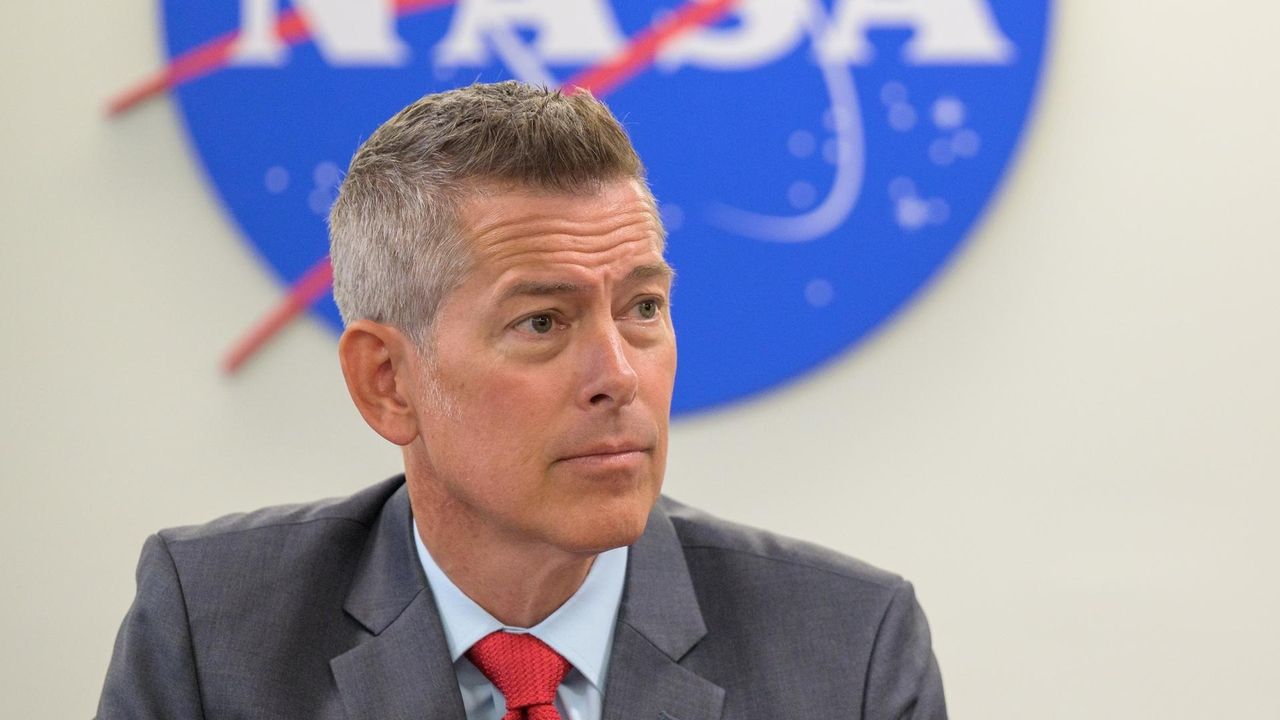NASA’s acting administrator, Sean Duffy, asserted the agency’s commitment to leading the lunar exploration race during an internal town hall last week. His remarks followed concerns expressed in a Senate hearing about China potentially landing astronauts on the moon before the United States. Duffy stated, “I’ll be damned if that is the story that we write,” emphasizing NASA’s determination to achieve a safe and timely return to the moon.
Duffy’s comments came in response to testimony provided on September 3, 2023, during a Senate Commerce Committee hearing titled “There’s a Bad Moon on the Rise.” Several witnesses, including former NASA Administrator Jim Bridenstine and former acting associate administrator Mike Gold, warned that delays in NASA’s Artemis program could allow China to establish a foothold on the lunar south pole first.
The Artemis program aims to return astronauts to the moon as a precursor to future missions to Mars. The upcoming Artemis 2 mission is set to be the first crewed test flight of the Orion spacecraft, carrying astronauts Reid Wiseman, Christina Koch, and Victor Glover, along with Canadian Space Agency astronaut Jeremy Hansen. This mission, scheduled to launch no earlier than February 2026, will be a lunar flyby, taking astronauts around the moon before returning to Earth.
NASA has ambitious plans for Artemis 3, which is intended to land astronauts on the lunar surface, particularly near the moon’s south pole, by 2027. However, uncertainties regarding budget and project timelines have raised concerns about whether these goals can be met. The agency’s challenges were highlighted during the Senate hearing, where Bridenstine cautioned lawmakers, “It is highly unlikely that we will land on the moon before China.”
Gold further stressed the implications of a Chinese lunar landing, stating, “If they get there first, we will see a global realignment that will impact our economy, our tax base, and our national security.” These warnings have intensified the urgency for NASA to meet its deadlines and secure its position in space exploration.
Despite these challenges, Duffy presented an optimistic outlook at the town hall. He rebutted the notion that NASA would fall behind, asserting, “NASA won’t beat China to the moon,” and referring to the Senate hearing’s discussions as “shade thrown on all of NASA.” He conveyed that the Trump administration supports the Artemis program, despite the agency facing broader budget constraints.
The proposed budget for fiscal year 2026 included significant cuts to NASA, reducing its overall funding by 24% and eliminating nearly half of the financial support for the agency’s science programs. While Congress has restored some of these cuts, the final allocations remain uncertain. Duffy indicated that Artemis is likely to receive full funding, linking the program to national ambitions for space exploration.
The Artemis initiative has been framed by President Trump as part of a larger vision for the U.S. in space, described as a “manifest destiny to the stars.” This phrase has drawn criticism in the past for its historical associations but reflects the administration’s commitment to assert American leadership in space.
During the town hall, Amit Kshatriya, NASA’s new associate administrator, emphasized the need for the agency to prioritize public service and accountability. He stressed, “We don’t work for profit. We work for the people,” highlighting NASA’s obligation to maximize the value of public funding.
Kshatriya also called for a cultural shift within NASA, urging staff to focus on action rather than analysis. He remarked, “We want you to have the black pen, not the red pen,” reinforcing the importance of proactive engagement in achieving NASA’s missions.
Duffy echoed this sentiment, noting that risk management is essential for progress. He stated, “Sometimes we can let safety be the enemy of making progress,” underlining the necessity of taking calculated leaps to advance lunar exploration.
Despite facing workforce reductions through the Trump administration’s “deferred resignation program,” which has resulted in nearly 4,000 employees leaving NASA, Duffy reassured staff that funding for space exploration has increased. He expressed confidence that the agency has sufficient resources to fulfill its mission, stating, “If we don’t, I’ll ask for more.”
As NASA navigates its challenges, Kshatriya reiterated that all agency activities must directly support the Artemis program, Mars exploration, or scientific research that facilitates human exploration. He conveyed that even indirect contributions to these missions are vital for NASA’s overall success.
Duffy concluded the town hall by affirming the importance of teamwork and collective effort within NASA. He acknowledged the agency’s current pressures but remained steadfast in his belief that NASA’s legacy should not be defined by losing the second space race. “We are not going to let this storied history of NASA be written that we lost the second space race,” he asserted, reinforcing a shared commitment to achieving lunar exploration goals.
